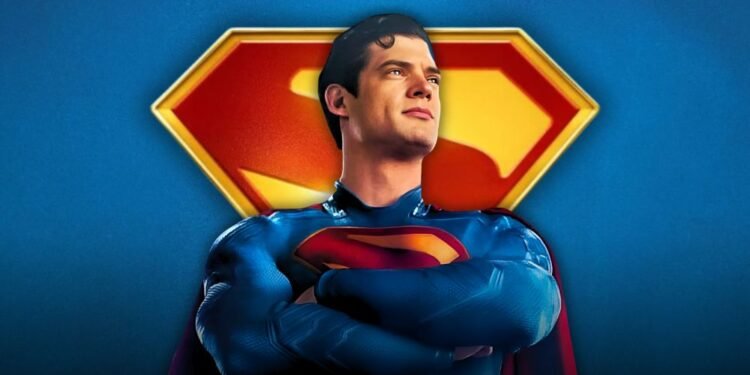The latest Superman reboot hasn’t even hit wide release, yet it’s already set off a firestorm of commentary from both sides of the political spectrum.
From conservative pundits slamming the film as another “woke” reimagining of a classic hero, to progressive critics defending its globalist framing and social media commentary, the cultural battle over what this Superman represents is in full swing.
But is it truly “woke”—or just reflecting the reality of our messy, politically charged world? Let’s break down the debate, the plot, and why people are arguing over a man in tights once again.
At the center of the controversy is writer-director James Gunn’s vision of Superman as an immigrant. That’s not new—Superman has always been an alien raised by small-town American farmers—but Gunn doubles down on that metaphor, calling the character “a story of America.”
“Superman is the story of America. An immigrant that came from other places and populated the country… for me it is mostly a story that says basic human kindness is a value and is something we have lost.”
“But screw them,” Gunn added, referring to people offended by that framing. Predictably, this triggered figures like former Superman actor Dean Cain, who criticized the direction as overly politicized, asking,
“How woke is Hollywood going to make this character?”
Fox News contributor Kellyanne Conway went further, claiming the new film avoids the phrase “truth, justice, and the American way,” calling it a moral sidestep in favor of vague “globalism.”
And here’s the kicker: she’s not wrong that the line was softened. In an interview, new Superman actor David Corenswet summarized the character’s values as “truth, justice, all that good stuff”—a line that plays in the movie, too.
But critics defending the change note that the original slogan was never central to the comics. It was first popularized in a WWII-era radio show and later amplified during the Cold War. It’s a cultural artifact, not gospel.
Still, it’s worth asking: why not reinforce American ideals in a superhero who’s arguably a symbol of American hope and strength? Is it truly necessary to strip that identity away to make Superman feel “inclusive”? Or is this just another instance of Hollywood distancing itself from patriotism in favor of ideological ambiguity?
Gunn’s Superman seems to live in a gray area—more thoughtful than his Snyder-era predecessor, but also more sanitized. The movie includes a major plot thread in which Superman intervenes in a fictional war between two nations: Boravia, led by a power-hungry dictator, and Jarhanpur, a struggling neighboring state.
The optics are controversial. Some critics claim it echoes Israel–Palestine dynamics, especially in the way the story flirts with the idea of oppressive governance and external military intervention.
However, Gunn has explicitly denied any direct inspiration from real-world conflicts, stating that Boravia and Jarhanpur are purely fictional creations. Others see it as a clearer parallel to the Russia–Ukraine conflict.
Gunn has denied any direct inspiration from real-world events, saying these countries are purely fictional. But the visual cues, character accents, and political framing leave the audience with little doubt—these are analogues. And that’s where things get complicated.
Superman doesn’t ask permission to intervene. He stops Boravia’s invasion unilaterally, then threatens future reprisal if the dictator acts again. On the surface, that looks like heroic action. But dig deeper, and you’re left wondering: is this diplomacy, or interventionism masked as moral authority?
Lois Lane asks that very question in the film. In a pivotal scene, she challenges Superman’s actions during a formal interview—not a private conversation, but a journalistic probe. She points out that Jarhanpur has its own history of questionable regimes and civil unrest.
So what gives Superman the right to act as global police? It’s a question that resonates in today’s world of drone strikes, proxy wars, and blurred lines between humanitarian aid and foreign control.
To the movie’s credit, it doesn’t resolve that conflict. It simply acknowledges it. But that avoidance is exactly what has drawn criticism from both sides: progressives say it pulls punches, while conservatives argue it plants seeds of distrust toward decisive, values-based action.
It’s not hard to see why. In a world where U.S. leadership is increasingly questioned, and American military action abroad is more scrutinized than ever, portraying Superman as an indecisive savior—or one who acts without clear allegiance—strikes a nerve.
And if the geopolitical undertones weren’t enough, Gunn layers in a subplot that reads like a meta-commentary on internet discourse itself. Lex Luthor, the classic villain, no longer just battles with gadgets and Kryptonite. He now deploys algorithmic warfare. Think: fake news, bot armies, and hashtag manipulation.
In fact, Gunn has said Lex’s new tactics are a reflection of “how truth is shaped online by algorithmic amplification,” clearly drawing from today’s social media chaos. In one scene, Lois accuses Superman of doomscrolling through critical comments. Yes, really.
It’s a jarring update to a timeless character, but perhaps it’s fitting. Gunn himself was nearly canceled in 2018 over offensive tweets before being reinstated by Disney after fan support. He’s experienced firsthand the venom of online discourse. His version of Superman isn’t immune to that world. He’s part of it. Whether that makes him more human or just more confused is up for debate.
What’s clear is this: the new Superman isn’t avoiding politics. It’s marinating in them. The immigrant metaphor, the military intervention plot, the online mob culture—all of it combines to paint a world where power, perception, and principle collide. That makes for a thoughtful film. But does it still make for a heroic Superman?
For some viewers, this iteration is a welcome modernization—a global citizen grappling with 21st-century dilemmas. For others, it’s another example of Hollywood complicating morality to the point of paralysis.
Maybe Superman doesn’t need to carry a flag, but should he at least stand for something more than vague kindness? Should he fight for truth, justice—and yes—the American way?
Or is it better that he now just represents “all that good stuff”?
You tell us. Is this Superman truly woke, or just realistic? Let us know what you think.












